All Saints Parish Church
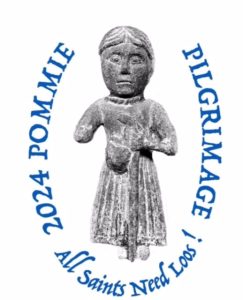 The Pommie Pilgrimage
The Pommie Pilgrimage
Pilgrims wanted – no experience needed! (religious or secular)
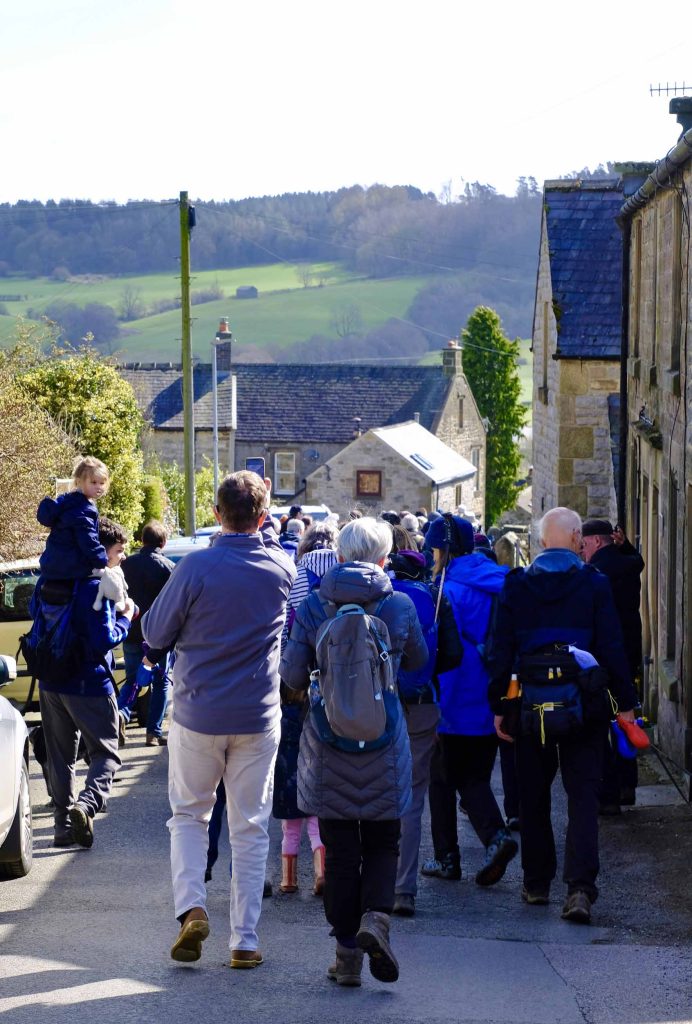
If you can spare between 2 and 5 days some time this summer, and are able to walk between 20 and 50 miles in that time, then The Pommie Pilgrimage needs you. Training, route planning, logistical support, merchandise and publicity available.
What – a spirited community-based plan to raise awareness of the remodelling costs (enormous) and needs (warmth, loos and a kitchen) of All Saints church, Youlgrave, by undertaking Pilgrim walks to each of the 42 Anglican cathedrals in England.
Where – initially starting from Youlgrave, we will walk to and between each cathedral: from Carlisle in the NW to Newcastle in the NE, from Lincoln and Norwich in the E, to Liverpool and Chester in the W, and from Canterbury in the SE to Exeter and Truro in the SW. We will create a unique “Pommie” network of footprints across England visiting all 42 cathedrals, collectively walking as many as 10 million steps on the way.
When – From March to October 2024; pilgrims can choose their own dates. The start has been set for an inclusive musical church service on Palm Sunday (24 March) with a group walk (over 3 days) from All Saints to Derby Cathedral to be greeted by Bishop Libby. We plan to celebrate the successful completion of all the Pilgrimages with a special church service on All Saints Day (3 November). The secular launch party, hosted by WI supper club, is on Friday 22 March and the final celebration party on Friday 1 Nov (look out for posters advertising these – see next page).
How – the routes will be walked using footpaths, canal paths and minor roads. The “how” is up to the people walking; maybe as a series of day walks, as part of a holiday trip, or when staying with friends, using public transport or lifts to return to a base each evening. Alternatively, it could be a more traditional pilgrim journey completed in one go, either camping, or staying in B&Bs or Pubs. Individuals, couples, families, friends or even a group of strangers can sign up. We’re happy to discuss and help you progress your plans over a drink. And how will the money be raised? By sharing our different stories far and wide on social media and highlighting our JustGiving page, and by engaging with those we meet as we journey, we hope to encourage financial sponsorship and support from beyond Youlgrave.
Who – everybody and anybody with a link to All Saints or to our village community is invited to take part and to support our endeavours. You can play whatever sized part you wish; you can walk a route, you can support or sponsor those who are walking, you can follow and share our social media pages, donate via JustGiving or simply buy Petra Pilgrim biscuits from Peak Feast. And please, if you can, do join the first walk for as far as you wish, or turn out to wave us off at midday on 24 March. Both the High Sheriff and the Lord Lieutenant of Derbyshire will be there.
Why – if you have a massive problem to solve and don’t know what to do, sometimes going for a walk helps you think it through. This is a giant sized walk, broken into smaller routes, each with an end goal and a purpose. Pilgrimages are popular for a reason, as people can take time to think, reconnect with nature, finding quiet space as they walk, and meeting strangers, who might become friends, on the way.
“All Saints need loos”; the Pommie Pilgrimage might just pave the way to getting them.
“connect, walk, donate” (we’re on Facebook, Instagram & Just Giving)
Any queries or for more information please contact – pommiepilgrimage@gmail.com
An introduction to the church
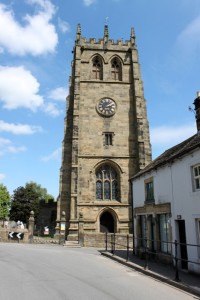 For centuries, our Parish Church has been a spiritual home to generations of villagers, a welcoming place for many visitors, and a constant reminder of the presence of God in our daily lives.
For centuries, our Parish Church has been a spiritual home to generations of villagers, a welcoming place for many visitors, and a constant reminder of the presence of God in our daily lives.
Countless prayers have been prayed here, many hymns have been sung, much music played. In moments of contemplation and of wordless prayer earth and heaven seem to be at their closest: Christ can be found and given space and time to speak, to comfort, to forgive…
People still worship God here, still live out a life of faith here, still find a little – or maybe more – of what they need. You are welcome to join us on this spiritual journey – as a local, a visitor, or perhaps a new resident. Whether you simply enjoy the peace of the church building, come to a service, or simply spend your time wandering the hills and dales…
You are welcome… just for some peace and quiet.
For more information on our church opening times, our service times, news about events as well as contact details, please visit our website which can be found at All Saints Church.
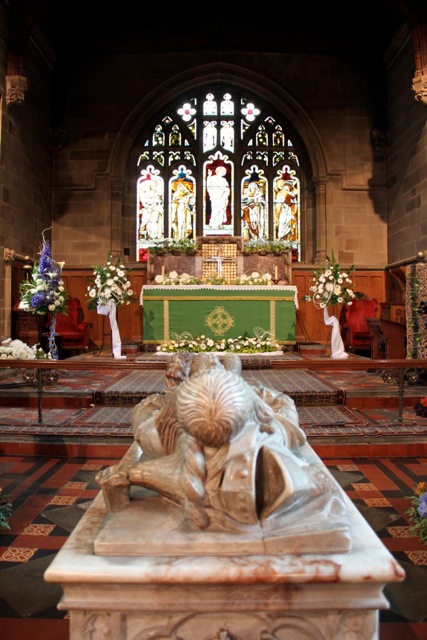
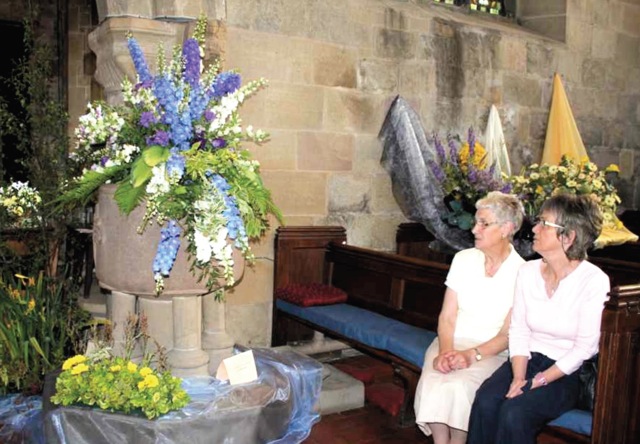
Some historical notes
The building dates from around 1150-70AD, but there was probably an earlier Saxon church on the same site. The oldest surviving parts are to be found in the nave, with typically thick Norman pillars and chamfered arches. But as All Saints developed over the centuries many different styles have been incorporated – from the large Gothic chancel to a range of Tudor windows, plus the bell tower that is typical of the Perpendicular style of the 15th century.
The Norman font belonged originally to the church at nearby Elton and is a simple sandstone affair with a salamander (the symbol of baptism) carved into its support. The chancel contains two interesting tombs, including an effigy of a 13th century knight, and beyond is the painted east window, designed by the celebrated Pre-Raphaelite artist Edward Burne-Jones and produced in the workshops of William Morris. Opposite the main door, at the end of the north aisle, is an unusual dedication to Charles I ‘King and Martyr’.
In the churchyard there are many fascinating old headstones, a few dating back to the 1700s and directly related to some of Youlgrave’s long-established families that still reside in the area today. Among the family plots are the Joules of Alport, whose descendants include James Prescott Joules who identified the unit of energy still known as a ‘joule’. Another person of note is Jane Shimwell, wife of Alexander McDougal who invented self-raising flour (she became Lady McDougal when he was knighted). Several victims of the Mawstone Mine disaster of 1932 are also buried in the churchyard.